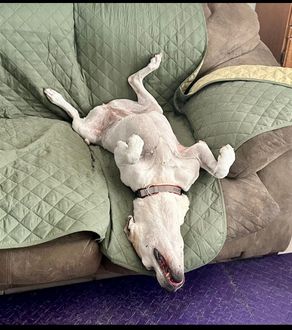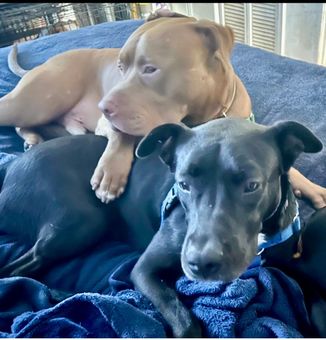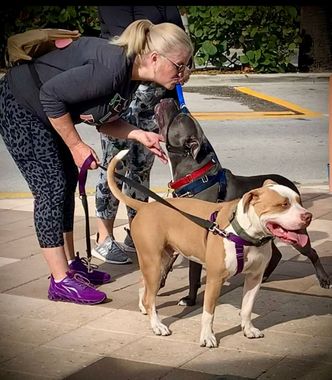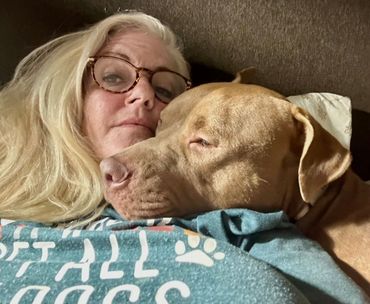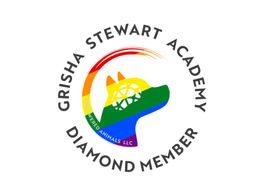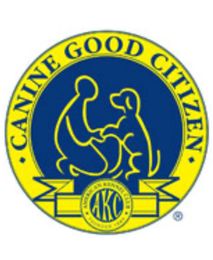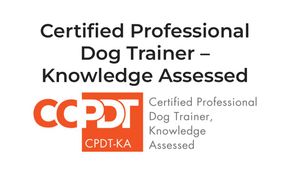
\ BENEVOLENT
SUN DOGS
Kimberly Geisert, CPDT-KA
Certified Professional Dog Trainer
There's a new philosophy in the dog training world: a paradigm shift where your dog has choices and you are encouraged to grow your relationship together to get to a deeper understanding of what each side needs. Your dog is not a mindless minion who needs harsh discipline, dominance, or to be shown that you are the "alpha" ......... Your dog is a thinking, emotional, creative being with a deep desire to connect with you on a meaningful level. The latest scientific research and the newest techniques in the industry include ideas such as Applied Dog Behavior, Functional Analysis, Free Will and Slow Thinking approaches, "Constructional Affection Training," CARE for Reactive Dogs, Touch Therapy, and "Animal Centered Education." Join us to explore these exciting new concepts and learn how apply them to your relationship with your pup while you build a better bond together!
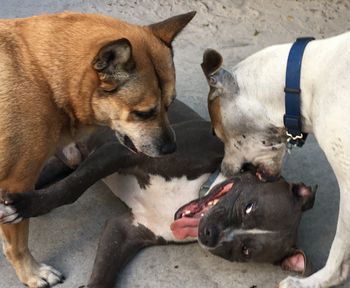
Behavior Modification:
Aggression, Fear,
& Anxiety
We use the latest scientifically proven, force free methods to change your dog’s Conditioned Emotional Response to triggers, whether that be other dogs, unfamiliar people, noises, vehicles, situational stressors, or environmental factors such as small animals, bicycles, children playing, or the time of day (yes— the “zoomies” usually occur within a certain time frame). Almost all aggression and reactivity are rooted in fear, and a large part of the solution involves confidence building. There are several different protocols available, though, and which one we use is dependent on your individual dog’s issues. Some of my favorites are:
•CAT (Constructional Aggression Treatment)
•Counter Conditioning and Desensitization, in which I use my own experienced dogs
•BAT (Behavior Adjustment Training)
•Engage/disengage, “Look At That”
•Confidence building field trips
•Medication suggestions and consults with your vet, when warranted
The most important thing with aggressive, reactive, and fearful dogs is that they feel understood and have a choice to disengage when their trigger is too overwhelming. With all dogs, but especially this category, PLEASE do not use aversive tools such as shock, choke, or prong collars, or harsh correction techniques. These tend to make the reactivity worse, and the psychological damage as a result can be lifelong and irreversible, which I would be happy to break down and explain in greater detail.
Basic Manners, Puppy,
and Canine Good Citizen Programs
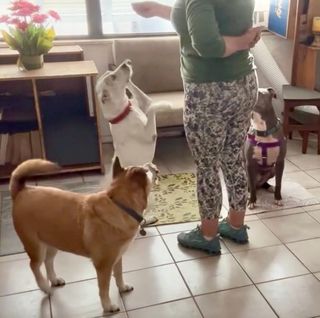
Meeting Your Dog's Mental, Emotional, and Physical Needs: The "Fun Stuff!"
Service Dog Training
Let me start by saying there a lot of misconceptions about the differences between Emotional Support (ESA), Therapy, and Service Dogs. Service Dogs are task-trained to assist their handlers with a medically confirmed psychological or physical condition, and are considered necessary for the navigation of their handler’s daily activities, similar to a piece of medical equipment. They are allowed to accompany their handlers anywhere the public is allowed (PA=Public Access), including schools, grocery stores, restaurants, airports/airplanes, hotels, shopping centers, buses, et al. As such, they require extensive time, training, and commitment by their handlers.
My SD clients must have a diagnosed condition that a Service Dog can assist with. Then the Service Dog in Training (SDiT) must pass the AKC’s Canine Good Citizen test. Then your team must log 60 hours of PA exposure (Public Access) independent of our training sessions, while we work together on task training. Examples of tasks I have helped SD’s learn are: alerting to low/high blood sugar; mobility issues (hoisting the handler up from a stationary position) and guiding for balance support; alerting to noises for hearing-impaired handlers; interrupting PTSD episodes; retrieving dropped items; going for help if the handler is unconscious or unable to stand; performing Deep Pressure Therapy (DPT) for both physical and psychological relief; alerting for cardiac and epileptic events; and alerting parents/teachers to episodes with children on the spectrum.
Please be aware that Service Dog training takes a minimum of six months and twenty sessions with me before I will risk my business, certifications, licensing, and reputation by confirming a SD for the TSA, DOT, individual airline, HOA, insurance company, school, property management, or any other organization that requires it. My SDiT clients must be willing to put the work, time, effort, and expense into training their dogs to the level defined by the Americans with Disabilities Act and Assistance Dogs International. That being said, my clients can (and should) do most of the training themselves, with me coaching their teams. I offer discounts for SD teams, and we advance at your pace. Contact me for more details.
Rescue, Socialization, Confidence Building, & Multi-Dog Families
Two of my favorite things are rescues and dogs---lots and lots of dogs! Bringing home a new rescue, whether you have other pets at home or not, can be a tricky business, though. Let us help guide you through the acclimation phase and get your new family member off to the best start!
Socialization and confidence building do not mean exposing your pup to as many unfamiliar people and situations in as brief a period of time as possible (that is called “flooding”— with good reason)! You want your dog to have a choice in his interactions with the outside world and all the stimuli in it, and I will show you how to ensure that these are positive, confidence-increasing experiences. I love field trips to dog-friendly places, and I have 5 dogs of my own who love to help me “normalize” new situations for client dogs (one at a time, of course). Short daily basic obedience training also is a great help in increasing confidence. Think about it: those things you have worked hard for in your life have way more intrinsic value than the things that were just given to you, and your confidence increases after you perform something new or difficult. (There’s actually a term for it in the dog training world: Contra-freeloading 😁) Dogs love to work for their reinforcers, whether it’s treats, playtime, physical affection, or verbal praise— they crave our attention! I would rather have a confident, fearless dog with selective hearing and minimal obedience than an extremely obedient automaton of a dog with no personality or choice, afraid to show some individuality. All of dog training is a work in progress, and I encourage my clients to be easy on themselves and their dogs when the inevitable poop hits the just-cleaned floor (or whatever). Look at it as a learning experience and a chance to see where your dog’s brain is at.
Veterinary and Shelter Behavior Modification
Sometimes traditional “training” misses the mark, and a client needs to seek a veterinarian’s assistance to add prescription medication and/or a more serious behavioral modification plan to address the underlying cause of an unwanted behavior or anxiety. My experience in assessing the need for canine behavioral modification, plus my excellence in writing clear, detailed reports for all members of the treatment team, is a hallmark of my professional career. I am working/have worked with several shelter/rescue groups, including Broward County Animal Care, Labrador Retriever Rescue of Florida, DD’s Senior Sanctuary, Milo's Dog Rescue of South Florida, Tales From The Barkside, and The Nuggetville Brigade, as well as several local veterinarians, on the “more challenging cases.” Please know that these dogs are not lost causes, and there are many new and promising treatment options, both medicinal and behavioral, as we are just beginning to understand how the canine’s brain functions. Contact me for more information, please.
New clients start here!
Click the link below to fill out our intake form, where you'll give me information about your dog's behavior, background, typical day, medical information, other family members, and your history as a pup parent. I'll also need you to sign a legal contract and take your payment information before we confirm our appointment.

